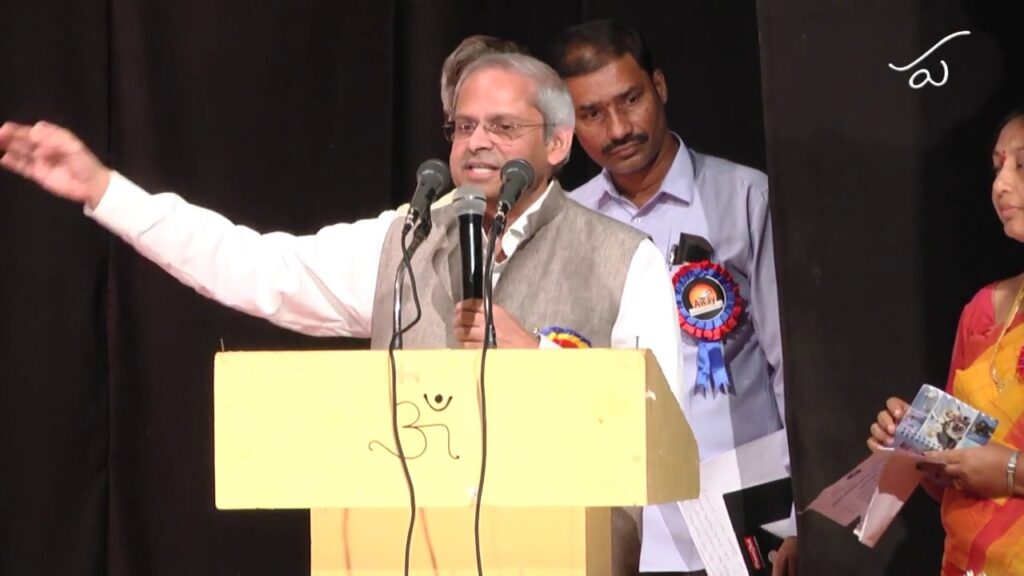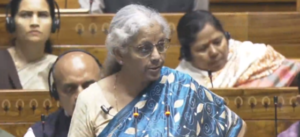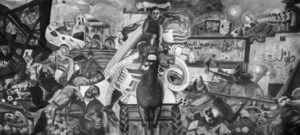[“No single political leader can end a democracy; no single political leader can rescue one either,” write Steven Levitsky and Daniel Zilblatt in How Democracies Die: What History Reveals About Our Future. In many ways, this sums up the India of today, as political economist Parakala Prabhakar concludes in The Crooked Timber of New India: Essays on a Republic in Crisis.
Prabhakar does not mince words or try to deflect blame away from Prime Minister Narendra Modi. He calls him staggeringly incompetent and points to the utter lack of imagination in governance that has pushed a huge number of people below the poverty line.
Prabhakar, who was in Chennai to release his book in late July, gave Frontline a hard-hitting interview and repeatedly went back to the theme of democracy being a shared responsibility of all citizens, saying: “It is us, as a people, who must ultimately take the blame.” Excerpts from the interview.]
RKR: Your book says the crisis will not end with Prime Minister Modi and Home Minister Amit Shah going away. Why do you say that?
PP: Many political and civil society platforms failed to seize the challenge that was emerging. Even the crisis today… many people will think: What crisis? We have a democracy, Parliament, the President, the State governments are functioning. But let me tell you this. The days of democracy dying because of an army coup are over. Today, it’s a slow death. Even the people administering institutions will not be able to figure out that the institution is dying or being restricted; it’s so imperceptible, gradual; but the effects are very real. That is the crisis. Secularism is in tatters. Our economy is in the doldrums. Centre-State relations are no longer federal. Our social fabric is torn. We have moved very far from the republic’s founding principles of democracy, secularism, liberalism, pluralism, diversity.
Bills are introduced and passed without any meaningful discussion. I think the farm laws were passed in about 10 minutes. And before the Punjab election, they were withdrawn. There was no discussion or statement from the government on why they were being withdrawn, or why they were introduced.
On the social front, there are not just dog whistles but also open calls for genocide, economic boycotts, lynching. Look at Manipur. Look at the economy. We have added about Rs.100 lakh crore debt in the last six-seven years. Youth unemployment is at a high of 23 per cent, we’re in the company of Lebanon and Sudan. The entire demographic dividend is being squandered.
RKR: You have called this the new BJP. As did Nalin Mehta, author of ‘The New BJP’, who also spoke of the labharthi schemes…
PP: Let me first of all make a small remark on the labharthi narrative. It is essentially, “I will give you three cylinders, 5 kg of wheat or rice, keep poor people a little happy.” But the government is giving three cylinders to the poor and three airports to a friend and five ports to another. About 84 per cent of the population has seen a steep decline in real incomes and purchasing power, while the number of billionaires has gone from 125 to 145. The regime can tell you, “Are you not proud of having 145 billionaires in our country”, but what is striking is not 140 billionaires but the 84 per cent of people whose incomes have shrunk. The government is not worried because it is not going to the public on the basis of the performance of the economy. The government is staggeringly incompetent when it comes to the economy. But “I am building a mandir, I have abolished Article 370, I’ve taught them a lesson, I will teach them a lesson”—these are the narratives being whispered into ears through social media.
They are not making themselves accountable for their performance regarding the economy or social welfare. Basically, they are not making themselves accountable.
RKR: Talking of the new BJP, you mention how the phrase “pradhan sevak” has been replaced by “vishwa guru” in nine years. What does this signify?
PP: If you go back to 2014, the main plank of the BJP was vikas [development], anti-corruption, creating jobs, bringing black money back. During the campaign, the then prime ministerial candidate said in many campaign speeches that the fight was not between Hindus and Muslims, the fight was between Hindus and Muslims on the one hand and corruption and unemployment on the other. That was the pitch.
After 2016, the discourse changed completely. He [Modi] used to talk about Team India, about “pradhan sevak”. He used to acknowledge the contributions of all the Prime Ministers. Today, Team India is just the Prime Minister. It appears that this is according to a very clearly thought-out plan—that they come in with this kind of discourse, make themselves acceptable, gain power, then unveil exactly what is there.
RKR: When we talk of today’s scenario, are we forgiving or underestimating the toxicity of the liberal facade under Atal Bihari Vajpayee?
PP: It is very complex… I will tell you one dramatic transformation that has happened in the political discourse. Not long ago, say 15 years ago, everybody, including the BJP, used to say we are secular: “We are also secular, but we are genuinely secular, not like other parties that are pseudo-secular. We don’t appease anyone… everybody will be treated equally.” The centre of political discourse remained secularism. Today it is not.
Today, every political party and leader is saying, “I’m also Hindu but not like them.” The discourse has travelled to force everybody to say this. This major transformation has not happened because of one or two leaders but as a result of decades of work put in by the Sangh Parivar.
Remember, Rajiv Gandhi was forced to start his election campaign in 1989 from Ayodhya. From there on, there was no looking back. The poison has seeped through deep now. So much so that an academic is able to rant against Mahatma Gandhi, openly calling him names. Can you imagine this happening a decade ago?
Today if a dharam sansad in Haridwar or somewhere calls for economic boycott, ethnic cleansing, genocide, the government is responsible, [as are] the Ministers, the Prime Minister, who don’t utter a word against it. Lynchings, Manipur, the wrestlers’ protest—nobody [in government] expresses solidarity.
RKR: The pandemic was one of the greatest challenges for the government. Was it incompetence or the lack of political will that led to so many contradictory orders, so many problems, so many deaths?
PP: It was all of the above. Its incompetence. Its not being able to size up the kind of threat the pandemic posed. One chapter in my book is titled “Pandemic logbook”; the pandemic is already raging, infecting people, and the government doesn’t give money for indigenous vaccine developers, it doesn’t negotiate with foreign firms about the long delays. Later, the government is not even aware of the gap between supply and demand of oxygen, beds, vaccines, etc. During the lockdown we did not take steps to beef up infrastructure. Economically, we lost. We had -27 per cent growth.
The thousands of people who walked—can any civilised society accept that kind of thing? People died on roads, on railway tracks, corpses floated in the Ganga. This was the situation. But because of the kind of ideology that has taken hold of people, there’s a general national numbing. We became numb.
This government has perfected the art of making the normal look abnormal, the abnormal look normal. It is normal for governments to do vaccinations. It’s not new; the government has given the polio vaccination, and many other vaccinations, free of cost. Now, we had differential pricing. It was inexplicable. But that was shown as rational and giving vaccinations was celebrated like a great thing.
The G20 leadership annually passes from one country to another. This government wants us to believe that the international community has conferred this honour on the mother of democracy. It has not. In spite of you being the mother of democracy, it [G20 presidency] will go away next year. So, a normal thing is made to look abnormal. Riots are normalised, lynching is normalised. Price rise, unemployment, rural distress, huge public debt—all these are normalised.
RKR: Lastly, is there hope? You speak a lot of the Congress. Is it Congress plus regional parties that form the nucleus of hope? Or does the responsibility lie with the people?
PP: There is hope. The reason I say this is because although it [BJP] looks like a juggernaut, the vote base is just about 38 per cent; confined to a few pockets. I think it is defeatable. But defeat is not inevitable. Victory is also not inevitable. I don’t believe in anything in history being inevitable.
Civil society and political platforms need to work for it, [they] need to understand the size of the challenge.
There is hope, definitely, but I want to caution people against complacency. Even if this dispensation were to go out in 2024, the threat will not go because it has penetrated so deep. It might take a decade or so to completely excise the kind of poison that has gone into the body politic of India.
(Courtesy: Frontline magazine.)




